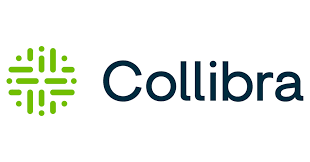
Introduction: Importance of data catalog for analysts
Data analysts rely on accurate, reliable, and relevant data to drive informed decision-making processes. A data catalog serves as a central repository that organizes and documents all available data assets within an organization in a systematic manner. By providing detailed metadata and information about each dataset, analysts can quickly discover and access the right data they need for their analysis. This streamlined access to data not only saves time but also enhances the overall efficiency of the analytical process.
Moreover, a robust data catalog enables analysts to collaborate effectively with other team members by promoting transparency and facilitating knowledge sharing. Through the use of searchable tags, categories, and descriptions, analysts can easily locate datasets that have been used or modified by their peers. This collaborative environment fosters innovation and encourages a culture of continuous improvement within the analytics team. In essence, a data catalog is not just a tool for organizing information; it is a catalyst for driving meaningful insights and empowering analysts to make more informed decisions based on accurate data sources. Become an Expert in Collibra with Collibra Training.
Overview of Collibra Data Catalog features
The Collibra Data Catalog offers a comprehensive set of features that significantly enhance the workflow of data analysts and scientists. One standout feature is its intuitive search functionality, allowing users to easily locate relevant datasets based on various criteria such as data type, source, or owner.
Additionally, the catalog provides detailed metadata for each dataset, including descriptions, tags, and lineage information, ensuring greater transparency and trust in the data.
Moreover, the Collibra Data Catalog enables collaboration among team members through its social interaction capabilities. Users can leave comments, ratings, and reviews on datasets, fostering knowledge sharing and facilitating decision-making processes within an organization. Furthermore, the platform’s ability to automatically detect similar or related datasets helps users discover hidden insights and connections that may not have been obvious initially. Overall, these advanced features make Collibra Data Catalog a game-changer for data professionals looking to streamline their data management processes and leverage their insights more effectively.
Streamlining data discovery and exploration process
With the ever-growing volume and complexity of data in today’s digital landscape, streamlining the data discovery and exploration process is crucial for organizations to derive valuable insights efficiently. By leveraging advanced tools like Collibra Data Catalog, data analysts and scientists can navigate through vast amounts of data with ease, saving time and resources. This empowers them to focus on analyzing the data rather than spending countless hours searching for relevant information.
Moreover, a streamlined data discovery process enables better collaboration among team members by providing a centralized platform where everyone can access and share accurate and up-to-date information. With Collibra Data Catalog’s robust search capabilities and metadata management features, analysts can quickly find the datasets they need, understand their contents, and ensure data quality. This not only accelerates decision-making processes but also fosters a culture of data-driven decision-making within the organization.
Enhancing collaboration among data professionals
To truly enhance collaboration among data professionals, organizations must prioritize creating a shared understanding of data assets and their definitions. This task can be efficiently achieved with the help of data cataloging platforms like Collibra. By centralizing metadata and providing a clear overview of data sources, schemas, and relationships, Collibra empowers data analysts and scientists to work together seamlessly. Through improved transparency and accessibility to critical information, teams can avoid misunderstandings or discrepancies that often arise due to siloed workflows.
Moreover, fostering a culture of knowledge sharing and open communication is crucial for maximizing the potential of collaboration among data professionals. With Collibra’s collaborative features such as annotations, comments, and ratings on datasets, individuals from different departments can exchange insights and feedback effectively.
Improving data quality and governance practices
One crucial aspect of improving data quality and governance practices is establishing clear ownership and accountability for data assets within an organization. By clearly defining roles and responsibilities, teams can ensure that data is being managed effectively and in line with industry regulations. This not only reduces the risk of errors and inconsistencies but also fosters a culture of data-driven decision-making where stakeholders can trust the information they are working with.
Moreover, leveraging technology such as Collibra Data Catalog can greatly enhance data quality efforts by providing a centralized platform for documenting metadata, lineage, and definitions. This allows data analysts and scientists to easily access accurate information about the datasets they are working with, leading to faster insights and more informed decisions. With automated processes for capturing metadata updates and changes, organizations can maintain high standards of data quality while enabling seamless collaboration across teams.
Leveraging metadata management for insights
Leveraging metadata management is like peering into the treasure trove of data within an organization. By meticulously organizing and cataloging metadata, data analysts and scientists can unlock a wealth of insights that may otherwise remain hidden. Each piece of metadata serves as a clue, guiding researchers towards valuable patterns, relationships, and anomalies in the data landscape.
With Collibra Data Catalog, this process becomes streamlined and efficient, empowering analysts to focus on extracting meaningful insights rather than getting lost in the maze of scattered information. The ability to link different datasets through shared metadata enables analysts to draw connections between seemingly unrelated data points, leading to richer analyses and a deeper understanding of complex datasets. In essence, harnessing metadata management is not just about organizing data – it’s about illuminating the path towards actionable insights that drive informed decision-making and propel businesses forward.
By embracing a metadata-driven approach with tools like Collibra Data Catalog, organizations can transform their data assets into strategic resources that fuel innovation and drive competitive advantage. With every click and query, analysts are armed with the knowledge needed to make critical decisions swiftly and confidently. Leveraging metadata management opens up a world of possibilities for those who dare to delve beneath the surface of raw data – unveiling hidden truths and propelling organizations towards success in our increasingly data-driven world.
Conclusion: Benefits of using Collibra Data Catalog
In conclusion, the benefits of using Collibra Data Catalog extend far beyond just organizing and managing data assets. One of the key advantages is the ability to foster collaboration and enhance communication among data analysts and scientists within an organization. By providing a centralized platform for sharing knowledge, best practices, and insights, Collibra promotes a culture of data-driven decision-making that can drive innovation and business growth.
Moreover, with its powerful metadata management capabilities, Collibra Data Catalog empowers users to gain deeper insights into their data assets, understand relationships between different datasets, and maintain data quality. This not only improves efficiency in data analysis but also ensures the accuracy and reliability of insights derived from the data. Ultimately, by leveraging Collibra Data Catalog, organizations can streamline their data governance processes, mitigate risks associated with improper data handling, and unlock the full potential of their data assets to drive success in today’s competitive business landscape.



